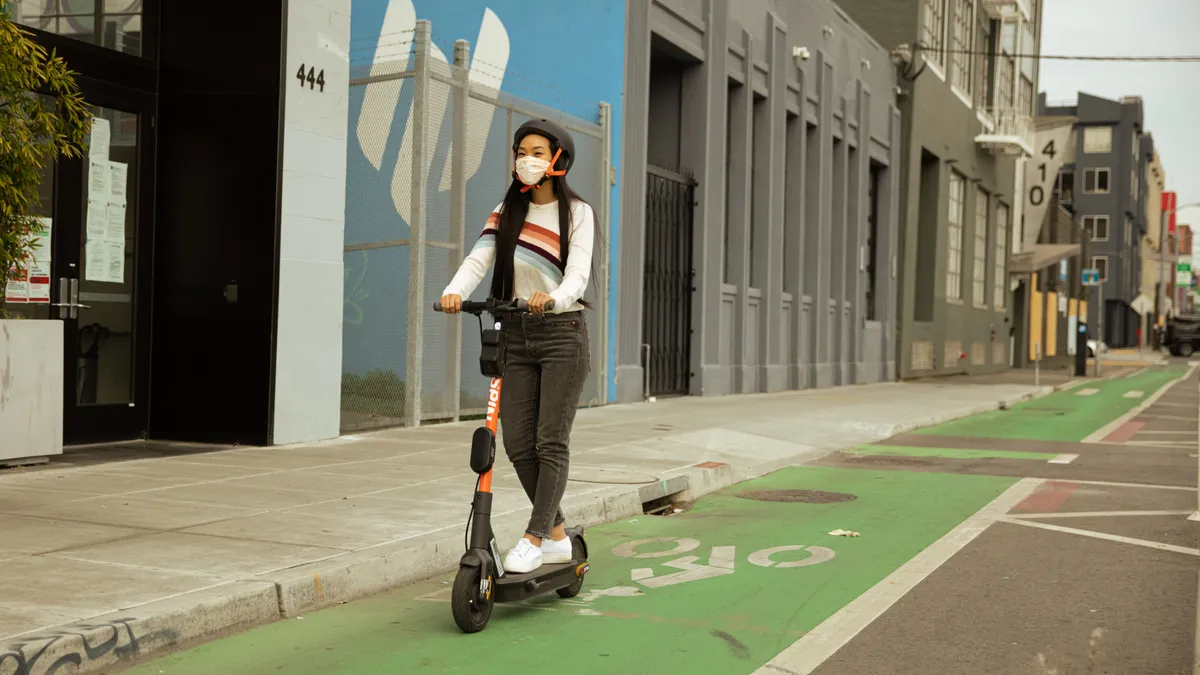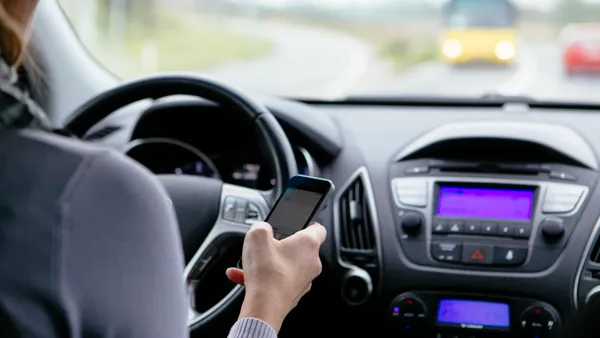Dive Brief:
- Spin announced this week an exclusive partnership with IoT solutions provider Drover AI to bring its computer vision and machine learning micromobility platform to Spin's scooter fleet.
- Drover AI's platform, dubbed PathPilot, equips scooters with sensors, a camera and on-board computing power to enable real-time sidewalk or bike lane riding detection and parking validation. The platform is incorporated into the Spin Insight e-scooter monitoring platform, now dubbed Spin Insight Level 2, to inform planning decisions such as bike lane routes.
- The micromobility operator presented Spin Insight Level 2 in an e-scooter permit application for the first time this week when responding to New York City's Request for Expressions of Interest (RFEI) in its 2021 e-scooter pilot. Responses to the RFEI were due on Dec. 16. If Spin is granted a permit, New York would be the first city to widely deploy its scooters with this technology.
Dive Insight:
New York City's much-anticipated e-scooter pilot, the terms of which were released on Oct. 30, has sparked a frenzy among operators all vying for a slice of the largest untapped micromobility market in the U.S. A number of Spin's competitors including Bird, Lime, LINK and Voi also expressed an eagerness to respond to the RFEI, putting the pressure on each of these companies to stand out.
While Spin is not the first micromobility operator to introduce AI-enabled detection capabilities to its fleet — Lime debuted detection technology in January across its San Jose, CA scooter fleet — the accuracy of Drover's technology gives it an edge over the competition, said Ben Bear, chief business officer at Spin.
"It's 95% accurate based on our testing, and that's because it's based on a camera," Bear said. "That camera is on board the device and the processing takes place on board of the scooter, so it's very low latency as a result, and it's very adaptable to new environments."
Spin has done preliminary testing of this technology in several of its markets and is "including it in several different applications in Q1," Bear said. "I suspect this will be on thousands of scooters by end of year."
While Drover's cameras bolster the benefits of this technology, they also can raise privacy concerns in cities where surveillance is a central point of contention. Privacy is something Spin thought a lot about, Bear said, but suggested Drover's technology and its outward-facing camera carries minimal risks, if any, to rider privacy.
"I think what's important there is that all the processing is happening on the device. The only data that's updated to the Drover system is, is the person on the sidewalk or are they not on the sidewalk," Bear said. "And in a lot of respects, if you think about the cameras that are now on personal cars for similar reasons, and will certainly be on AVs in the future, it's just a requirement to have that camera to get the insights and the real-time detection that we're talking about here."
To test the validity of these privacy protections, Spin conducted an 18-month research study at Virginia Tech with its camera-equipped scooters to address safety concerns ahead of this public unveiling, Bear said. "So we've been working on this for a while and thought very deeply and talked to people, smarter and with more credentials than ourselves, about what's appropriate here from a data management perspective."
Spin has likened Drover's technology to that of advanced driver-assistance systems (ADAS), which have prioritized technological innovations to enhance the safety of drivers, passengers and pedestrians. And while the PathPilot technology does not support autonomous riding, Bear said autonomy is on the micromobility horizon.
"I think that we'll see self-driving scooters going around in more cities sooner, by far, than you'll see self-driving cars at scale," he said. "I think we'll be seeing a lot more there in the next year."












